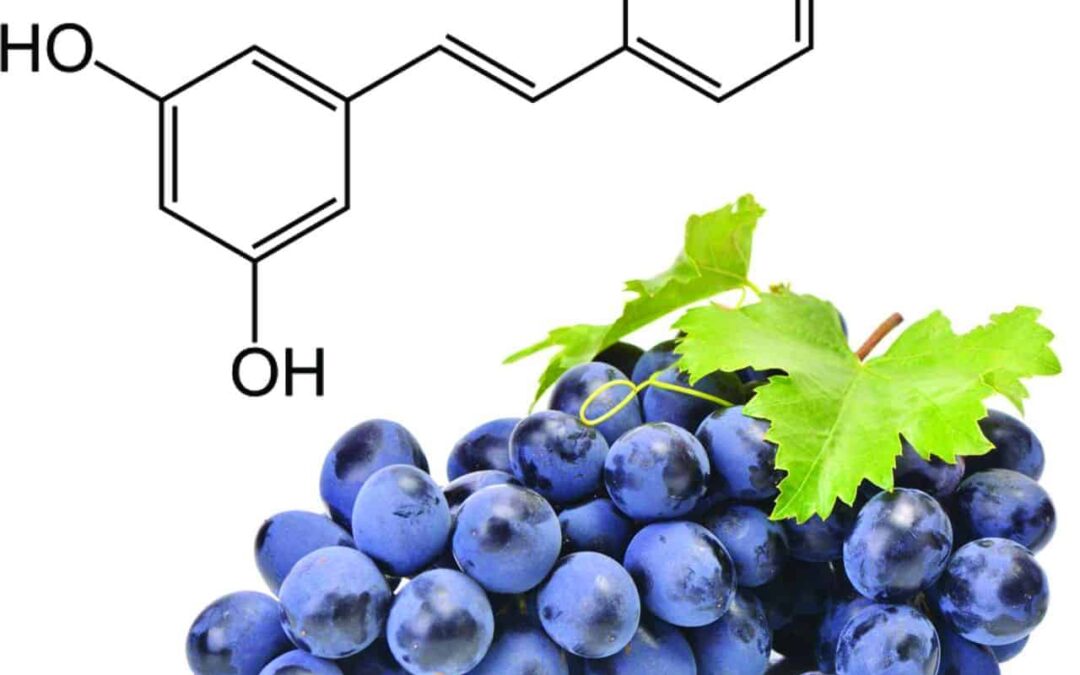Resveratrol is a naturally occurring polyphenol found in various plants, notably in red grapes, berries, and peanuts. It has attracted significant attention due to its potential health benefits, particularly in the realms of aging, cardiovascular health, and cancer prevention. This article explores the science behind resveratrol, its purported benefits, and the current state of research surrounding this intriguing compound.
What is Resveratrol?
Resveratrol is a type of polyphenol known for its antioxidant properties. It belongs to a class of compounds called stilbenes, which are found in the skin of grapes and various other plants. The compound has been most famously associated with red wine, a beverage that contains resveratrol due to the fermentation of grape skins. However, resveratrol is also present in significant amounts in other sources, such as blueberries, raspberries, mulberries, and certain nuts.
Mechanism of Action
Resveratrol exerts its effects through several mechanisms, primarily by acting as an antioxidant. Antioxidants are molecules that neutralize free radicals—unstable molecules that can cause oxidative damage to cells and tissues. This oxidative damage is linked to various chronic diseases, including cancer, cardiovascular disease, and neurodegenerative disorders.
In addition to its antioxidant properties, resveratrol influences several biological pathways:
- Sirtuin Activation: Resveratrol is known to activate sirtuins, a family of proteins that regulate cellular processes, including aging, inflammation, and metabolism. Sirtuins are involved in the repair of damaged DNA and the maintenance of cellular health. By activating sirtuins, resveratrol may contribute to longevity and improved metabolic function.
- Anti-Inflammatory Effects: Chronic inflammation is a key factor in many diseases, including heart disease and arthritis. Resveratrol has been shown to reduce inflammation by inhibiting inflammatory pathways and modulating the expression of inflammatory cytokines.
- Improvement in Endothelial Function: The endothelium is the thin layer of cells lining blood vessels. Resveratrol has been found to improve endothelial function, which is crucial for maintaining healthy blood circulation and reducing the risk of cardiovascular disease.
Health Benefits of Resveratrol
- Cardiovascular Health
One of the most well-studied benefits of resveratrol is its impact on cardiovascular health. Research has shown that resveratrol can improve several markers of cardiovascular health, including blood pressure, cholesterol levels, and endothelial function.
Studies have demonstrated that resveratrol may help lower LDL cholesterol (often referred to as “bad” cholesterol) and increase HDL cholesterol (the “good” cholesterol). Additionally, it has been found to reduce blood pressure and improve arterial elasticity, which can lower the risk of heart disease.
- Anti-Cancer Properties
Resveratrol has garnered attention for its potential anti-cancer properties. In laboratory studies, resveratrol has been shown to inhibit the growth of various cancer cells, including those associated with breast, prostate, and colon cancers. The compound appears to exert its effects through several mechanisms, including inducing apoptosis (programmed cell death) in cancer cells, inhibiting tumor growth, and reducing inflammation.
However, while the preclinical evidence is promising, human studies are still limited. More research is needed to determine the efficacy of resveratrol as a preventive or therapeutic agent in cancer.
- Neuroprotection
Neurodegenerative diseases, such as Alzheimer’s and Parkinson’s disease, are associated with oxidative stress and inflammation. Resveratrol’s antioxidant and anti-inflammatory properties make it a candidate for neuroprotection. Studies have shown that resveratrol may help protect against cognitive decline and neurodegeneration.
In animal models, resveratrol has been found to improve memory, reduce the accumulation of amyloid plaques (a hallmark of Alzheimer’s disease), and enhance overall brain function. Clinical trials in humans are ongoing, and while preliminary results are encouraging, more research is needed to establish resveratrol’s role in neuroprotection.
- Metabolic Health
Resveratrol has also been studied for its effects on metabolic health, including obesity and type 2 diabetes. Research suggests that resveratrol may improve insulin sensitivity, reduce blood sugar levels, and aid in weight management.
In animal studies, resveratrol has been shown to activate pathways that enhance fat metabolism and reduce fat accumulation. Human studies have reported mixed results, but some have observed improvements in metabolic markers with resveratrol supplementation.
Sources of Resveratrol
Resveratrol can be obtained from various dietary sources, although the amounts found in food are relatively small compared to those used in research studies. Key sources include:
– Red Grapes and Red Wine: One of the most well-known sources of resveratrol. The concentration of resveratrol in red wine is lower than in supplements but can still contribute to overall intake.
– Berries: Blueberries, raspberries, and strawberries contain resveratrol, though in smaller amounts.
– Peanuts: Peanuts and peanut butter are also good sources of resveratrol.
– Dark Chocolate: Contains resveratrol, along with other beneficial polyphenols.
Supplementation and Dosage
Resveratrol supplements are available in various forms, including capsules, tablets, and powders. The dosages used in studies typically range from 100 mg to 500 mg per day, though the optimal dose for health benefits is still under investigation.
While resveratrol supplements are generally considered safe, they can interact with certain medications, including blood thinners and medications for diabetes. It is essential for individuals to consult with healthcare professionals before starting resveratrol supplementation, especially if they have underlying health conditions or are taking other medications.
Challenges and Future Directions
Despite the promising research, there are several challenges and limitations to the use of resveratrol. One major challenge is its bioavailability; resveratrol is rapidly metabolized and eliminated from the body, which can limit its effectiveness. Researchers are exploring various formulations and delivery methods to enhance bioavailability and improve therapeutic outcomes.
Additionally, while animal studies have shown significant benefits, translating these results to human health requires more extensive clinical trials. Long-term studies are needed to confirm the benefits of resveratrol supplementation and to establish safe and effective dosages.
Conclusion
Resveratrol is a polyphenol with a range of potential health benefits, including improved cardiovascular health, cancer prevention, neuroprotection, and metabolic support. Its antioxidant and anti-inflammatory properties make it a promising candidate for promoting overall health and longevity.
While current research is encouraging, it is essential to approach resveratrol with a balanced perspective. Continued research and clinical trials will be crucial in determining the full scope of resveratrol’s benefits and establishing guidelines for its use. Until then, incorporating resveratrol-rich foods into a balanced diet, combined with a healthy lifestyle, may offer a beneficial approach to supporting health and well-being.

